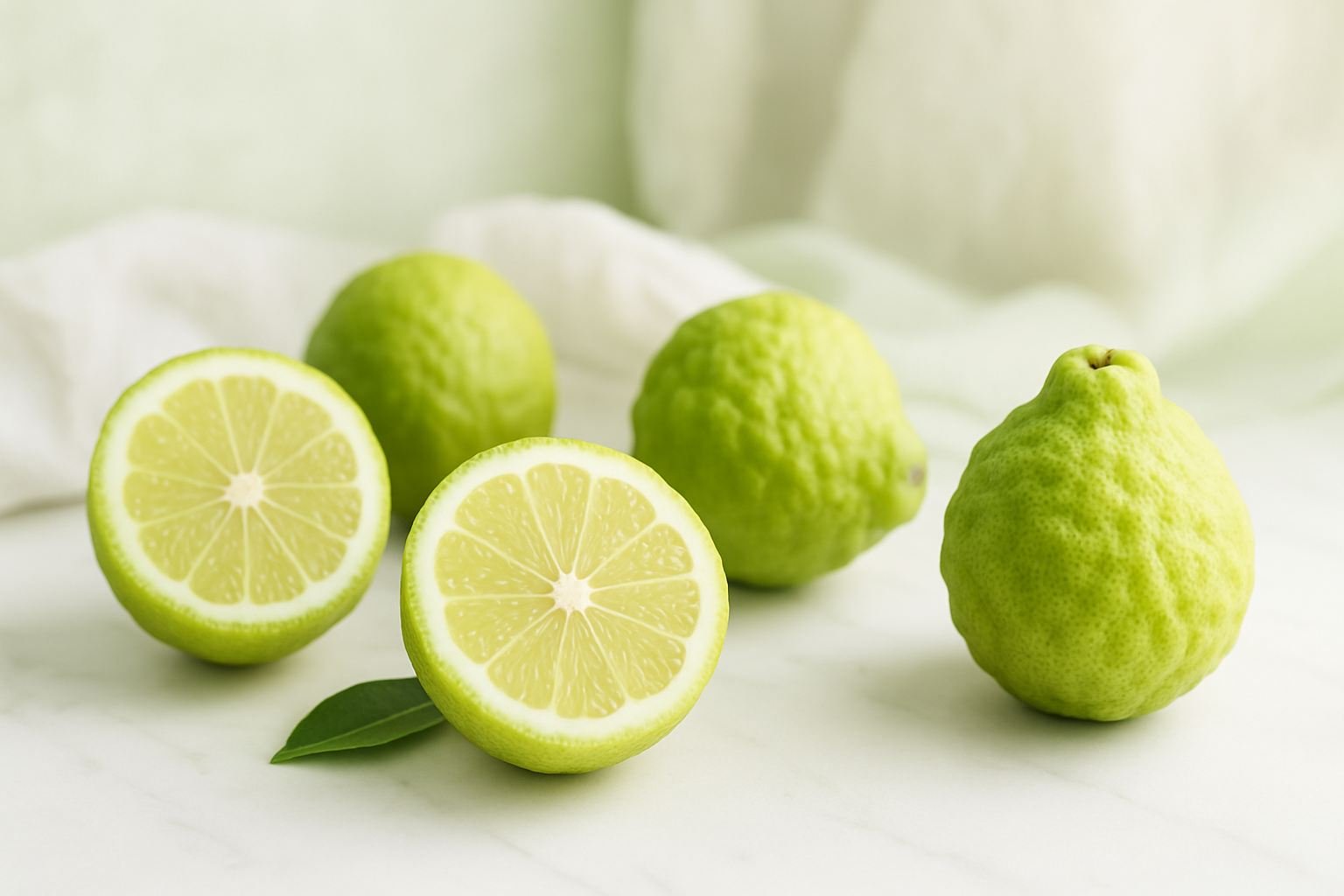Citrus bergamot has been gaining attention as a natural option for supporting cardiovascular wellness. Rich in unique polyphenols, this small citrus fruit from southern Italy may help maintain healthy cholesterol levels, support blood vessel function, and contribute to overall metabolic health.
This article explores what citrus bergamot is, how it works, what the research shows, and how to choose a high-quality supplement.
Understanding Cholesterol and Heart Health
Cholesterol is a waxy substance present in all cells of the body. It plays important roles in hormone production and cell structure. However, when LDL ("bad") cholesterol is too high and HDL ("good") cholesterol is too low, it can create an imbalance that affects cardiovascular wellness.
Many people look for plant-based ways to help support healthy cholesterol, either on their own or alongside medical treatment. Citrus bergamot is one such option that has been studied for its potential benefits.
What Is Citrus Bergamot?
Citrus bergamot (Citrus bergamia) is a fragrant citrus fruit grown mainly in Calabria, Italy. While its essential oil is well known for flavoring Earl Grey tea, its juice and peel contain bioactive compounds that make it unique among citrus fruits.
Key polyphenols and flavonoids in citrus bergamot include:
- Brutieridin and melitidin – compounds unique to bergamot
- Neohesperidin and naringin – antioxidant flavanones
- Polyphenolic fraction (BPF) – studied for effects on cholesterol metabolism
These compounds have been shown in studies to influence lipid metabolism, helping the body maintain cholesterol balance in a natural, plant-based way.
Clinical Research on Citrus Bergamot
Several clinical trials have investigated citrus bergamot's role in supporting healthy lipid profiles:
- 2013 study (77 participants): Participants taking bergamot extract experienced support for healthy lipid balance within 30 days.
- 2016 6-month prospective study: Participants taking bergamot extract over six months showed positive support for maintaining cholesterol within the normal range
- Mechanism studies: Mechanism studies suggest bergamot may help the body support natural cholesterol metabolism and maintain balance through normal bile acid pathways.
Benefits Beyond Cholesterol
Citrus bergamot polyphenols may also benefit broader aspects of metabolic and cardiovascular wellness:
- Antioxidant activity – Compounds like naringin and rutin help neutralize oxidative stress, supporting healthy blood vessel function.
- Triglyceride support – Bergamot extract has been studied for its role in helping maintain healthy triglyceride levels already within the normal range.
- Metabolic balance – Bergamot extract may help improve insulin sensitivity and support metabolic health.
These wide-ranging benefits make citrus bergamot a strong candidate for those interested in natural cardiovascular and metabolic support.
P.S. If you want to know more about how Citrus Bergamot can help your metabolism, check out our other blog on the topic: Metabolic Wellness & Citrus Bergamot.
How to Choose a Quality Citrus Bergamot Supplement
Not all supplements deliver the same level of active compounds. To ensure effectiveness and safety, look for:
- Standardized extract with at least 38% total polyphenols
- Clinically studied compounds like brutieridin and melitidin
- Third-party testing for purity, potency, and heavy metals

Dosage and Safety
- Typical doses in studies: 500–1,500 mg/day
- Common approach: 500 mg twice daily with meals
- Safety: Bergamot is generally well tolerated. Mild digestive discomfort may occur in some people. Those with citrus allergies should avoid it.
If you're already taking cholesterol-lowering medications, always consult a healthcare provider before starting citrus bergamot, since both may affect cholesterol metabolism.
Key Takeaways
- Citrus bergamot is a small citrus fruit rich in unique polyphenols.
- Clinical research suggests it may help support healthy cholesterol, triglycerides, and metabolic function.
- Its antioxidant properties contribute to vascular and metabolic wellness.
- Choosing a standardized, third-party tested supplement ensures safety and effectiveness.
FAQs
Q1: How long does it take to see results?
Some studies suggest noticeable support for lipid balance within 4–8 weeks, especially when combined with a healthy lifestyle.
Q2: Can citrus bergamot be taken with statins?
It may enhance the effects of statins. Always check with your healthcare provider before combining.
Q3: Does bergamot cause side effects?
Bergamot is usually well tolerated. The most common side effects are mild digestive upset. Those with citrus allergies should not take it.
FDA Disclaimer
These statements have not been evaluated by the Food and Drug Administration. This product is not intended to diagnose, treat, cure, or prevent any disease. Always consult your healthcare provider before beginning any supplement regimen.
References
- National Heart, Lung, and Blood Institute. (2021). *Cholesterol: The facts*. U.S. Department of Health and Human Services, National Institutes of Health. Retrieved from https://www.nhlbi.nih.gov/sites/default/files/publications/THT-CholesterolFactSheet.508.%20FINAL.pdf
-
Di Donna, L., De Luca, G., Mazzotti, F., Napoli, A., Salerno, R., Taverna, D., & Sindona, G. (2009). Statin-like principles of bergamot fruit (Citrus bergamia): Isolation of 3-hydroxymethyl-glutaryl flavonoid glycosides. *Journal of Natural Products, 72*(7), 1352–1354. https://doi.org/10.1021/np900096w.
- Gliozzi, M., Musolino, V., Carresi, C., Vitale, C., Mollace, R., Janda, E., Ragusa, S., Muscoli, C., Gratteri, S., & Mollace, V. (2013). The effect of bergamot-derived polyphenolic fraction on lipid profile, oxidative stress, and markers of vascular damage in patients with hyperlipidemia. *International Journal of Cardiology, 170*(2), 140–145. https://doi.org/10.1016/j.ijcard.2013.08.125
- Mollace, V., Sacco, I., Janda, E., Malara, C., Ventrice, D., Colica, C., Visalli, V., Muscoli, S., Ragusa, S., Muscoli, C., Rotiroti, D., & Romeo, F. (2011). Hypolipemic and hypoglycaemic activity of bergamot polyphenols: From animal models to human studies. *Fitoterapia, 82*(3), 309–316. https://doi.org/10.1016/j.fitote.2010.10.014
- Toth, P. P., Patti, A. M., Nikolic, D., Giglio, R. V., Castellino, G., Biancucci, T., Geraci, F., David, S., Montalto, G., Rizvi, A., Rizzo, M., & Banach, M. (2016). Bergamot reduces plasma lipids, atherogenic small dense LDL, and subclinical atherosclerosis in subjects with moderate hypercholesterolemia. *Frontiers in Pharmacology, 6,* 299. https://doi.org/10.3389/fphar.2015.00299
- Nauman MC, Johnson JJ. Clinical application of bergamot (Citrus bergamia) for reducing high cholesterol and cardiovascular disease markers. Integr Food Nutr Metab. 2019 Mar;6(2):10.15761/IFNM.1000249. doi: 10.15761/IFNM.1000249. Epub 2019 Feb 28. PMID: 31057945; PMCID: PMC6497409.



